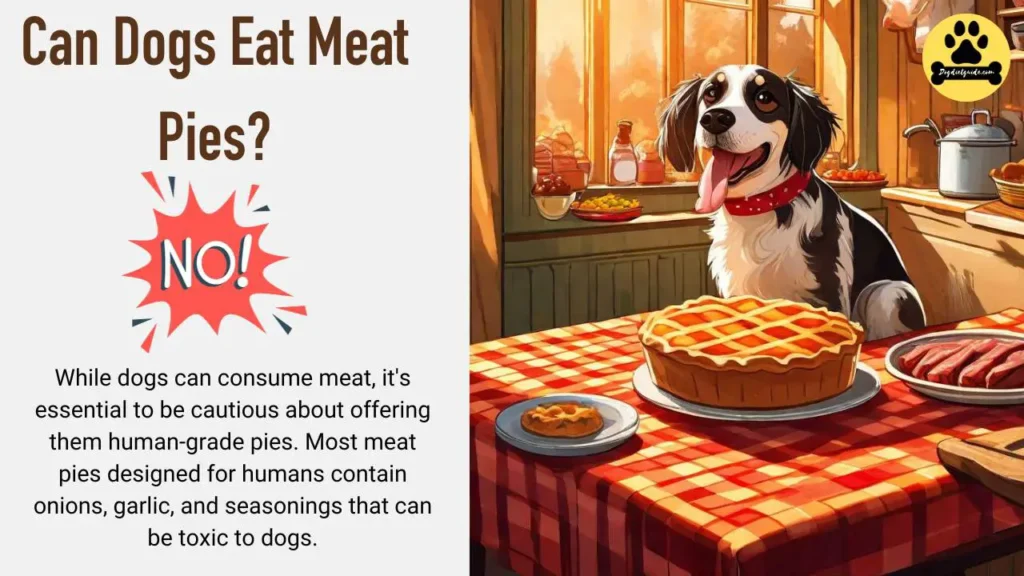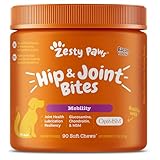Meat pies, with their savory fillings encased in a flaky crust, are a beloved comfort food enjoyed by many around the world. As pet owners, it’s natural to wonder whether our canine companions can share in the culinary delights we savor. After all, dogs are often eager to sample whatever delicious morsels we’re indulging in. Can dogs eat meat pies?
While dogs can consume meat, it’s essential to be cautious about offering them human-grade pies. Most meat pies designed for humans contain onions, garlic, and seasonings that can be toxic to dogs.
Ingredients in Meat Pies
A typical meat pie usually contains minced or diced meat, pastry, vegetables, and various seasonings. While meat is a crucial component, other elements may be less compatible with a dog’s digestive system.
Can Dogs Eat Meat Pies?
No, feeding meat pies to dogs is strongly discouraged by nutritionists due to the elevated risk of toxicity. Human-designed meat pies often contain onions, garlic, and seasonings, which can harm dogs.
Onions and garlic, in particular, can lead to the development of a severe condition known as hemolytic anemia. The pastry crust tends to be rich in fat and may include challenging components for dogs to digest, potentially resulting in digestive problems.
Opt for plain, cooked meat without any added seasonings for a safe and enjoyable meaty treat.
Potential Hazards
Several components of a meat pie can pose potential hazards to dogs:

-
Pastry: The pastry in a meat pie is often made from wheat flour, which can be difficult for canines to digest. Additionally, it may contain butter or other fats that can lead to gastrointestinal upset.
-
Seasonings: Onions, garlic, and specific spices are frequently included in meat pies. However, it’s crucial to note that these elements can be highly toxic to puppies and must be entirely avoided in any canine diet.
-
Vegetables: While vegetables are generally considered healthy for dogs, some commonly used in meat pies, like onions and mushrooms, can be harmful.
-
Salt and Other Additives: High salt content and other additives in store-bought or pre-packaged pies can harm a dog’s health.
Related Post: Can Dogs Eat Meatballs?
Meat Pies Side Effects In Dogs
-
Digestive Upset (diarrhea, vomiting)
-
Obesity
-
Allergies or Sensitivities
-
Pancreatitis
-
Nutritional Imbalance
-
Choking Hazard
-
Bones (splintering)
-
Increased Risk of Canine Diabetes
-
Salt and Seasonings
-
Onions and Garlic (toxicity)
-
Xylitol (if present in sweeteners)
Moderation and Customization
If you’re considering sharing a small portion of a meat pie with your dog, removing any potentially harmful ingredients is crucial. Opt for a plain, unseasoned, and vegetable-free piece of meat from the pie.
Before incorporating any new food into your dog’s diet, especially one as intricate as a meat pie, seeking advice from your veterinarian is highly recommended. They can provide tailored guidance based on your dog’s specific dietary requirements and potential allergies.
FAQs
Can dogs eat meat pie pastry?
No, it’s not recommended. The pastry in meat pies is high in fat and may contain complex ingredients for canines to digest, potentially causing gastrointestinal upset.
Can my dog eat a steak pie?

Feeding your furry friend, a steak pie is not advisable. Most steak pies contain onions and garlic, which can be toxic to dogs. It’s best to offer plain, cooked meat without any added seasonings.
Can my dog eat pork pies?
No, dogs should not consume pork pies. They often contain harmful ingredients like onions and garlic, leading to serious health issues. Stick to plain, cooked pork without any added seasonings.
Can dogs eat apple pie?
While plain apples in moderation can be safe for dogs, apple pie is not recommended. The pie crust and added sugars can be problematic for puppies. It’s best to offer them small, plain apple slices as an occasional treat.
Related Post: Are Raw Chicken Backs Safe For Dogs?
Final Thoughts: Can Dogs Eat Meat Pies?
While dogs are primarily meat-eaters, feeding them a meat pie designed for human consumption is not recommended due to the potential hazards it may pose. If you wish to share a small portion with your furry friend, removing any harmful components and consulting your veterinarian beforehand is vital.
Remember, a balanced and specially formulated canine diet is always the best way to ensure your dog’s health and well-being.










![Can Dogs Eat Blood? 7 Side Effects [Expert Opinion]](https://petskor.com/wp-content/uploads/2022/04/Webp.net-resizeimage-12.jpg)
